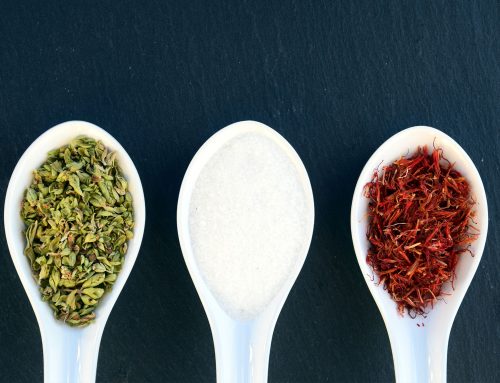The way we eat is about to undergo a dramatic transformation, driven by environmental necessity and evolving consumer preferences. While traditional diets have centred around animal products, mounting evidence suggests we need to change our ways and look for different ways to eat food, in a way that is sustainable for both our long-term health and the health of our planet.

The Environmental Aspect
Global livestock emissions must peak by 2030 to meet the Paris climate agreement targets1. Currently, the livestock sector accounts for 15-20% of greenhouse gas emissions and is the leading driver of deforestation[1]. Despite this urgency, global meat consumption isn’t projected to peak until 2075, highlighting the gap between environmental needs and current consumption patterns[1]. It is an undeniable fact that in order to stop climate change, we need to adjust our diets to include less land-intensive protein sources.
Scientific Evidence for Plant-Forward Diets
Research from the University of Oxford analyzing data from over 55,000 people shows that compared to high meat-eaters, plant-based diets result in[2]:
75% reduction in greenhouse gas emissions
75% reduction in land use
54% reduction in water use
73% reduction in eutrophication
66% reduction in biodiversity impact
The Health Aspect
The shift toward plant-forward eating isn’t just about environmental sustainability. According to an umbrella review of 48 meta review or systematic review papers[3], a plant-based diet can offer numerous health benefits, including but not limited to:
- Reduced blood pressure, decreased cholesterol levels, and lower inflammation
- Reduced risk of coronary heart disease (25%), cardiovascular disease mortality (8-32%), type 2 diabetes (~30%), colorectal cancer (22%), breast cancer, and a general reduction of cancer incidence (14%).
- Additionally, plant-based diets rich in fibre and antioxidants support overall health and prevention of many chronic diseases.
Plant-forward diets can not only reduce the intake of harmful content but at the same time increase the intake of beneficial food – leading to significantly improved health.
The Economic Aspect
A plant-forward diet can also be more budget-friendly. Plant proteins like beans, lentils, and chickpeas typically cost less than meat while providing excellent nutritional value[4]. As plant-based options become more mainstream, it has become easier than ever to find plant-based protein sources. If you want to minimise the cost, consider buying dried beans and lentils – if you are prepared to soak them overnight, otherwise canned versions still provide excellent value for money. Furthermore, according to Bhatia et al. (2021)[4], plant-forward diet can be beneficial on societal levels by:
- Reducing healthcare costs
- Requiring less land, water, and energy by reducing animal agriculture
- Reducing greenhouse gas emissions (and thereby reduce climate change related effects)
A Balanced Solution: The Plant-Forward Approach
The good news is that we don’t need to eliminate animal products to make a difference. A plant-forward diet offers a flexible, sustainable approach that emphasises whole plant foods while allowing moderate consumption of animal products. This “80/20” approach means eating whole plant foods about 80% of the time while enjoying other foods, including meat and dairy, for the remaining 20%.
Key Components of Plant-Forward Eating
Emphasise these foods (80%):
- Fruits and vegetables
- Whole grains
- Legumes
- Nuts and seeds
- Herbs and spices
Include in moderation (20%):
- Meat and fish
- Dairy products
- Eggs
- Ultra-processed foods
Getting Started
Making the transition doesn’t have to be overwhelming. Here are some practical steps:
- Add more plants to existing meals
- Simply adding some spinach to your meal is an easy way to get more vitamins K, A, and C as well as magnesium, fibre, and iron
- Try plant-based versions of favourite recipes
- Like our delicious plant-based Shepherd’s pie (Find it in the Kitchen Adventure app)
- Experiment with meatless meals a few times per week
- Focus on adding rather than restricting
- Learn more about this in our other blog Sustainability by Addition
Looking ahead
The future of food is above all else about finding balance – between environmental needs and personal preferences, between tradition and innovation. It is simply much more effective to be doing something rather than to do nothing. Did you want to be vegetarian but can’t because of something you LOVE? No problem! Find ways to include it in your diet, while doing what you can. The world does not need perfection, but the current path is unsustainable and needs adjusting. By adopting a plant-forward approach now, we can contribute to a more sustainable food system while at the same time maintaining the flexibility to enjoy all types of foods in moderation.
Remember, every small change matters. This is why we have developed The Kitchen Adventure as a way to help you on your journey. We are not, and will never be a vegan or vegetarian recipe app. We work with real chefs to create great-tasting recipes and provide you with an eco-score to help you make an informed choice about the sustainability of what you eat.
The diet of the future isn’t about restriction – it’s about making conscious choices that benefit both personal and planetary health. The time to start is now. We want to help you start, so sign up for the open beta of The Kitchen Adventure today, and let us help.
Written by: Tobias Gjerlufsen
Image source: Pexels.com
Sources
[1] – https://www.vox.com/future-perfect/2024/3/20/24105735/peak-meat-livestock-emissions-plant-based-climate-deadline
[2] – Scarborough, P., Clark, M., Cobiac, L. et al. Vegans, vegetarians, fish-eaters and meat-eaters in the UK show discrepant environmental impacts. Nat Food 4, 565–574 (2023). https://doi.org/10.1038/s43016-023-00795-w
[3] – Angelo Capodici, Gabriele Mocciaro, Davide Gori, Matthew J. Landry, Alice Masini, Francesco Sanmarchi, Matteo Fiore, Angela Andrea Coa, Gisele Castagna, Christopher D. Gardner, Federica Guaraldi. Cardiovascular health and cancer risk associated with plant based diets: An umbrella review. PLOS ONE, 2024; 19 (5): e0300711 https://doi.org/10.1371/journal.pone.0300711
[4] – Bhatia, Vikas; Gopi, Gokul; Behera, Priyamadhaba,. Plant-based diet: A solution to the sustainability of life and environment. Indian Journal of Community and Family Medicine 7(1):p 19-24, Jan–Jun 2021. | https://doi.org/10.4103/ijcfm.ijcfm_123_20




